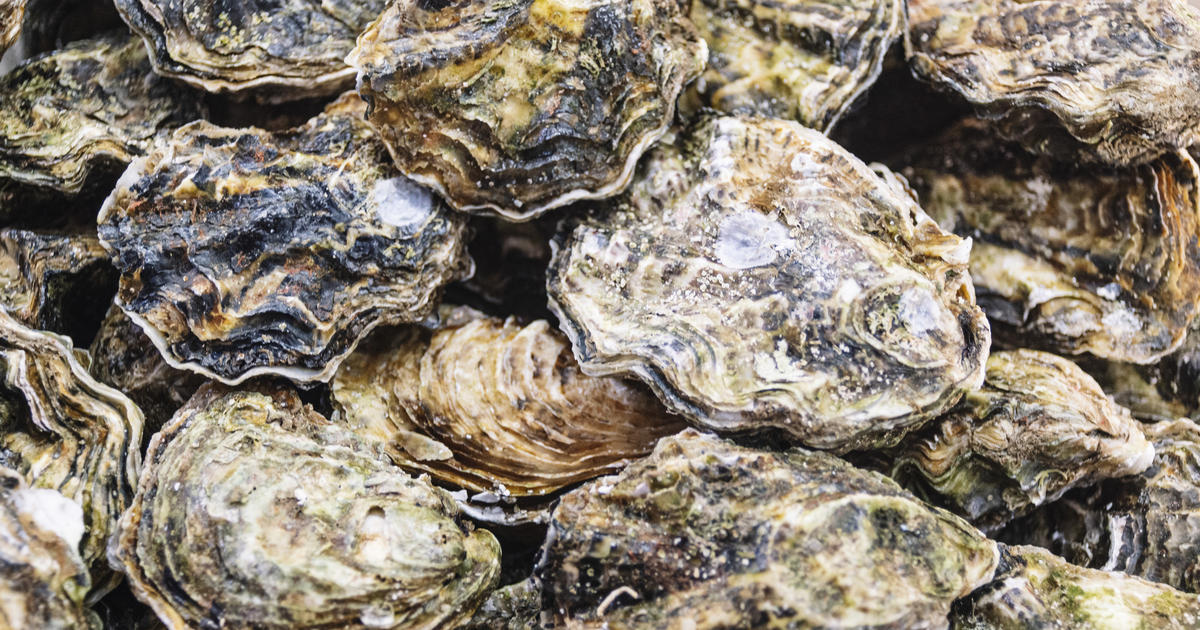HealthWatch: Going 'Paleo' Means Cutting Out Common Items From Diet
(CBS 5) - Converts to the paleolithic diet trend claim they are shedding pounds and repairing damage done to their health by eliminating a number of common items in their former diet.
Bay Area blogger and paleo diet enthusiast Tara Grant said she lost more than 100 pounds in 2011 following the diet - today, she's even slimmer. "I've lost about 15 more pounds, I don't even weigh myself anymore," said Grant. "And I've never felt better."
Grant is part of a growing trend of "Caveman Converts" who swap processed foods, dairy and sugar for meat, fish, poultry, nuts and seeds, and fruits and vegetables galore.
Complete HealthWatch Coverage Of The Paleo Diet
It's an elimination diet that has also worked for Tennessee neurosurgeon Dr. Jack Kruse. Seven years ago, Kruse tipped the scales at 357 pounds. He changed what he ate and saw dramatic results. "Within three months I lost 77 pounds," said Kruse,"and within 11 months I had lost 133 pounds."
Mark Sisson, author of "The Primal Blueprint," was a top endurance athlete in the late 70's and early 80's. A marathoner and triathlete, Sisson was training really hard, putting in a lot of miles and following the conventional wisdom of the time -- carbohydrate loading -- taking in about 1,000 grams of carbs a day, mostly complex carbohydrates, mostly based on a grain-based diet.
Sisson said the combination of the diet and the training was actually killing him.
"I was one of the fittest people on the planet, I was the picture of health and inside I was falling apart," said Sisson. "I had irritable bowel syndrome, I had chronic respiratory tract infections six or eight times a year, I had osteoarthritis in my feet, I had chronic tendonitis in my hips, I was a wreck."
Sisson quit competing and began researching the types of food he was eating and how his body responded to them. "I saw that much of what I was eating was pro-inflammatory, was causing systemic inflammation throughout my body."
So Sisson changed what he ate. "Six to 11 servings a day is the base of the food pyramid, I cut those out entirely," said Sisson, "(and) replaced it then with fruits, veggies, and meat." He said it's not even lean meats. "If I have a 2-pound ribeye steak and I can't finish it, I cut out the lean parts and give it to my dog, and I finish the fat," joked Sisson.
"Grains are probably the worst thing in the human diet," said Sisson. "We have just not evolved to withstand these little mini-toxins, these anti-nutrients that are in grains."
Dr. Lane Sebring, a specialist in integrative medicine, argues grains over-stimulate the immune system and can actually block the absorption of better food that we should be eating.
"If you remove the insults that leak through the intestinal wall and cause chronic inflammation, the immune system starts to calm down, the liver is able to take care of metabolic waste products that our own body is producing and not the stuff that is leaking through the gut wall, and you start cleaning things up," said Sebring.
Sebring said the human body is wonderful at repairing itself - feed it well and it will do just that.
He believes it is also important to give up seed oils, another inflammatory food.
"Soybean oil, corn oil, safflower, sunflower, canola those are sources of omega-six fat," said Sebring, "(which) can get way out of balance and cause systemic inflammation throughout the body." These oils are ubiquitous, especially in processed foods.
Added sugars are another thing paleo dieters do without. Added sugars boost insulin levels, make you feel tired and hungry. Sisson said give up those three things, "grains, the industrial seed oils, the sugars, and you are 95% of your way to being healthier just by making those small changes in your diet."
Nora Gedgaudas, author of Primal Body, Primal Mind used a fire metaphor to explain the impact of sugars.
"When we eat a diet that's carbohydrate-based, that's based on sugar and starch, it's like relying on kindling to fuel your metabolic fire," said Gedgaudas. She means you need to be constantly preoccupied with keeping that fire burning, you're constantly having to eat more and more carbohydrates. If, instead, you rely on fat as your primary source of fuel, it's liberating.
"Once you put a nice big fat log on that metabolic fire, you are free to go off and live your life," said Gedgaudas. "If the fire starts to burn down, put another log on the fire, but it is not a constant preoccupation."
Fat, she explained, is a very even burning fuel. "It doesn't go up and down, it doesn't take you on a roller coaster ride and it doesn't stimulate the release of insulin," said Gedgaudas.
(Copyright 2012 by CBS San Francisco. All Rights Reserved. This material may not be published, broadcast, rewritten, or redistributed.)



